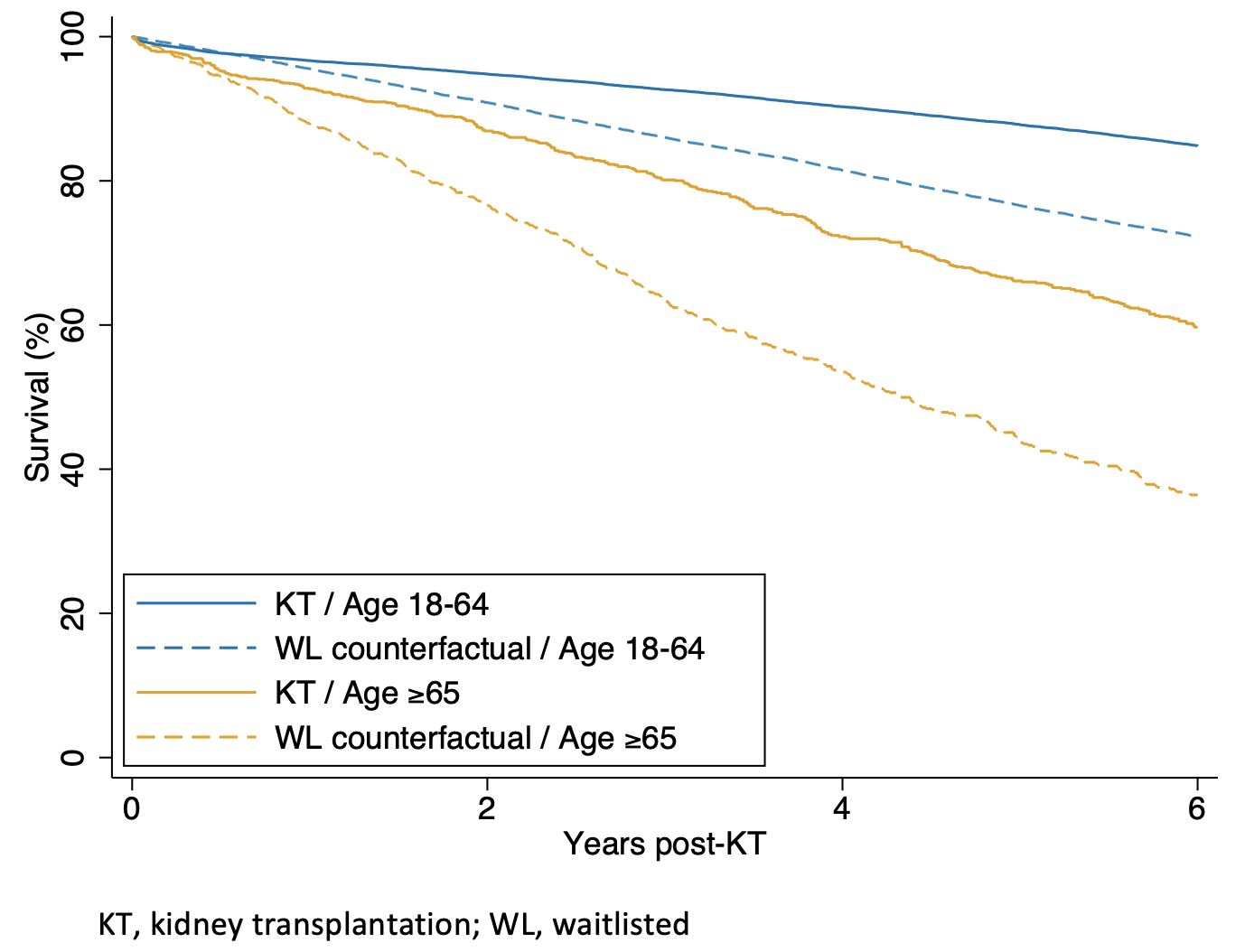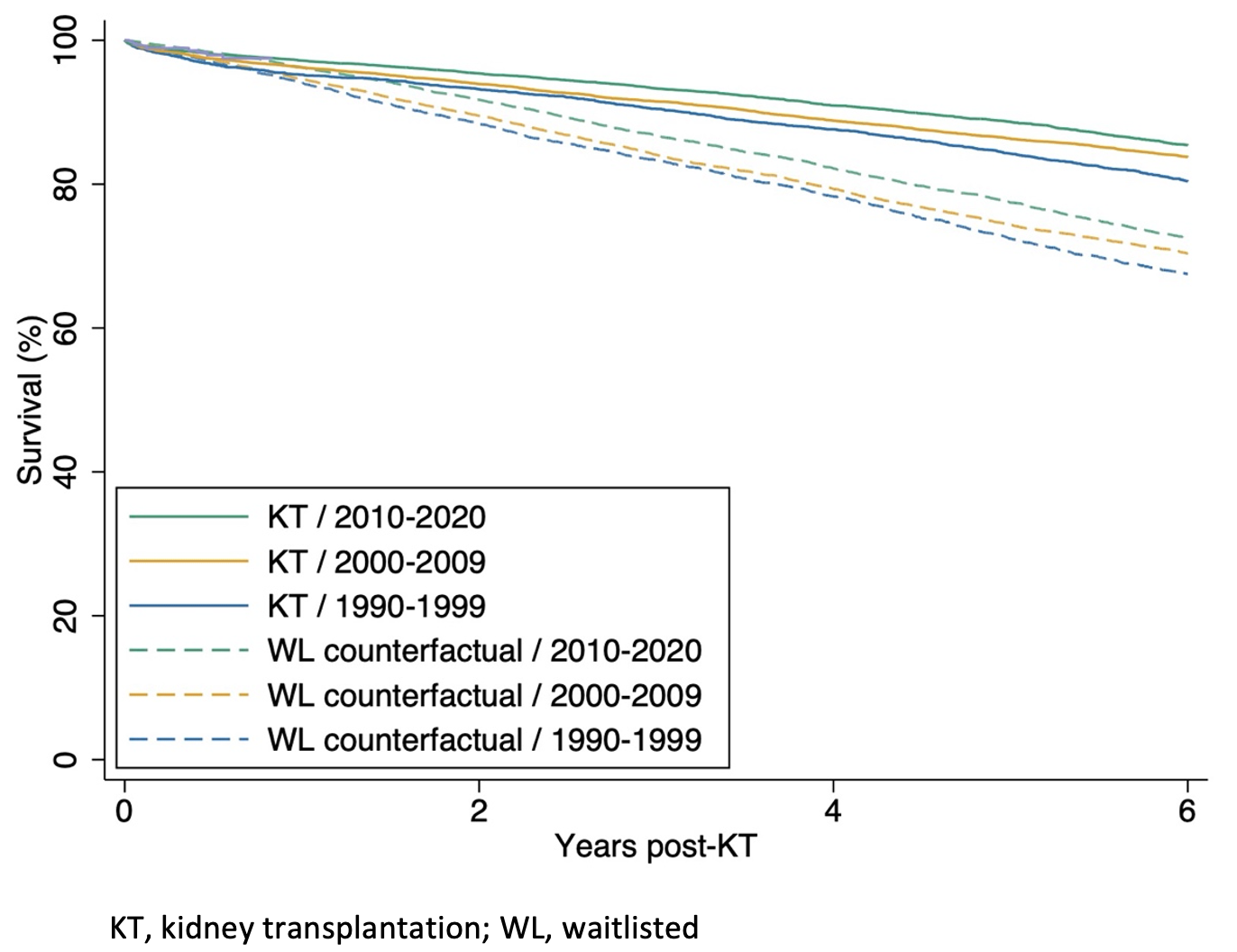Re-Kidney Transplantation in Patients with Graft Failure: Survival Benefit by Age
1Johns Hopkins University, Baltimore, MD, 2McGill University, Montreal, QC, Canada
Meeting: 2022 American Transplant Congress
Abstract number: 1739
Keywords: Age factors, Graft failure, Retransplantation, Survival
Topic: Clinical Science » Kidney » 50 - Health Equity and Access
Session Information
Session Time: 7:00pm-8:00pm
 Presentation Time: 7:00pm-8:00pm
Presentation Time: 7:00pm-8:00pm
Location: Hynes Halls C & D
*Purpose: As the rates of kidney transplantation (KT) have doubled over the past three decades, so has the proportion of patients who experience graft failure and are in need of re-KT. Older analyses have demonstrated the survival benefit of re-KT; however, this remains to be demonstrated in the current era where the age of patients with graft failure has increased and outcomes of patients on dialysis are improving. We aimed to characterize the survival benefit of re-KT over time and compare survival benefit in older and younger patients.
*Methods: Using SRTR data, we identified patients with graft failure who were waitlisted for re-KT between 1990-2019. To quantify the survival benefit of re-KT, we matched re-KT recipients with randomly selected waitlisted patients from the same calendar year who spent the same amount of time on the waitlist. We used inverse probability weighting method to adjust for confounding. We compared the risk of mortality among waitlisted patients and those undergoing re-KT. We tested whether this association differed by patient’s age at listing for re-KT (18-64 versus ≥65 years).
*Results: 52,899 patients were listed for re-KT between 1990-2019. Survival has improved over time among both re-KT recipients and for patients on the waitlist for re-KT (p<0.001). Patients who received re-KT had higher survival probability compared with patients who remained on the waitlist at 1 year (96.5% versus 95.2%), 3 year (92.1% versus 85.1%), and 5 year (86.9% versus 75.2%). When compared with waitlisted patients, re-KT was associated with a survival benefit (adjusted hazard ratio [aHR]=0.600.620.64) and this benefit has persisted over the past three decades. Also, this benefit existed for both older and younger patients (p for interaction=0.30).
*Conclusions: Despite improving outcomes of waitlisted patients with graft failure, re-KT continues to be associated with a survival benefit even among older patients. As graft failure has become one of the leading causes of kidney failure in the U.S., our analysis supports increasing access to re-KT among younger and older patients with graft failure.
To cite this abstract in AMA style:
Ahn J, Sandal S, Massie A, Segev D, Cantarovich M, McAdams-DeMarco M. Re-Kidney Transplantation in Patients with Graft Failure: Survival Benefit by Age [abstract]. Am J Transplant. 2022; 22 (suppl 3). https://atcmeetingabstracts.com/abstract/re-kidney-transplantation-in-patients-with-graft-failure-survival-benefit-by-age/. Accessed February 13, 2026.« Back to 2022 American Transplant Congress


